
Best employer branding in the UK
Universum studied 39,500 students from 97 British Universities to understand the career aspirations, goals and workplace requirements for graduates.

Universum studied 39,500 students from 97 British Universities to understand the career aspirations, goals and workplace requirements for graduates.

Our Candidate Compass research for 2019 revealed that an increasing number of students and graduates are taking on a second earning project, alongside their studies or full-time jobs and we wanted to find out more about them.

On Tuesday 22nd October, we hosted the Institute of Student Employers Attraction and Marketing Forum. Check out our key highlights from the afternoon.

Here we share the key findings from our Candidate Compass report, where we surveyed over 7,000 students and graduates. We also share tips from global branding expert, Universum, on how you to harness your employer brand. Finally, we have some advice from Student Minds on how to support student and graduate well-being.

Our research shows that 62% of Gen Z have taken a mental health sick day, but only 24% were honest with their employer.
In this guide, we cover our findings on mental health, a report by Student Minds and insight from the Institute of Student Employers.
We also share a number of actionable tips for addressing mental health and supporting young workers, as they transition from university to the workplace.

Key findings:

The number of those working from home is increasing each year, and COVID-19 has demonstrated to a great many employers that working from home is possible. Here we discuss working from home and productivity, the positive impact of a happy workforce and trust.

Our ‘Graduate Recruitment Guide’ covers a broad range of common recruitment challenges and offers clear solutions. Perhaps you want to improve your recruitment and onboarding processes? Create a powerful graduate campaign? Promote your employer brand? Improve diversity within your firm? Provide mental health support? We’ve got you covered…

We have undertaken a lot of research on attracting and retaining diverse talent. This has enabled us to both understand students’ attitudes and to pinpoint more about what employers could do to act on this research. Here we look various areas of our insight and offer tips on how to improve social mobility and attract a diverse talent pool.
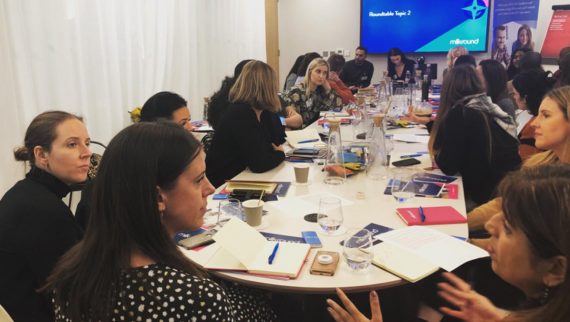
On the 21st November, we were joined by 25 employers for an afternoon of roundtable discussions. We spoke about their biggest graduate recruitment challenges in 2019, as well as how they can better shape attraction and retention activity in 2020.

These highlights from our first webinar provide insight into the graduate market, specifically around how students are currently feeling and how you can best support them. Here we share key takeaways from the session, including graduate expectations, what they see as success, plus our top tips for retaining top talent.

Reverse mentoring is a great way to support graduates with building relationships and provide development opportunities for all employees. Here we reveal our latest research on this and how graduates can support other employees with digital skills – even when working from home. We also share our top tips for implementing a reverse mentoring scheme.
28-day ads from £435 Buy now

Universum studied 39,500 students from 97 British Universities to understand the career aspirations, goals and workplace requirements for graduates.

Our Candidate Compass research for 2019 revealed that an increasing number of students and graduates are taking on a second earning project, alongside their studies or full-time jobs and we wanted to find out more about them.

Milkround have been working with UpRising for a number of years, as part of their ‘Fastlaners‘ programme for 18-25-year-olds. Discover our involvement and how employers can get involved and support developing the employability skills of young talent.

With COVID-19 having impacted graduates’ career choices, we look at their current living situations and how the pandemic has affected where they are looking to live and work in the future. Learn more about how our findings present opportunities for businesses to showcase their closest cities to students and graduates.

We share out latest research into how much it costs for graduates to relocate when stepping into the world of work. We also offer tips on how employers can better support graduates financially.
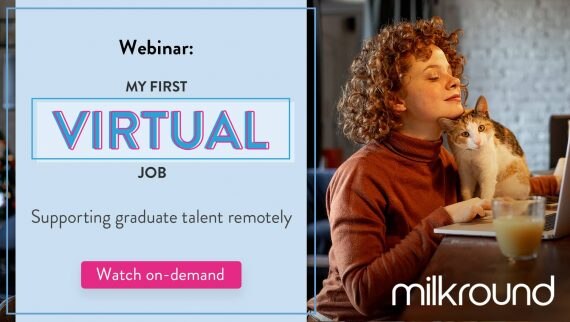
Our latest research explores the experiences of graduates who have entered the workforce over the past year and how they have coped with a new remote way of working. The webinar also covers the thoughts of 500 HR decision makers who have hired graduates during national UK lockdowns and their thoughts for the future of work.

On Tuesday 22nd October, we hosted the Institute of Student Employers Attraction and Marketing Forum. Check out our key highlights from the afternoon.

Our research shows that 62% of Gen Z have taken a mental health sick day, but only 24% were honest with their employer.
In this guide, we cover our findings on mental health, a report by Student Minds and insight from the Institute of Student Employers.
We also share a number of actionable tips for addressing mental health and supporting young workers, as they transition from university to the workplace.

Here we share the key findings from our Candidate Compass report, where we surveyed over 7,000 students and graduates. We also share tips from global branding expert, Universum, on how you to harness your employer brand. Finally, we have some advice from Student Minds on how to support student and graduate well-being.

We recently delved into the minds of 5,700 students and graduates, to find out about young people’s career confidence.
Here we focus on how female graduates are suffering with imposter syndrome and how you can support them in the workplace.
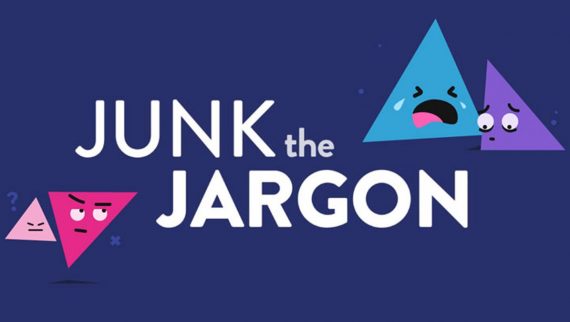
Our research, where we surveyed 2,000 graduates, found that 71% of people can be discouraged from applying for jobs because of jargon. We encourage employers to use our ‘Jargon Decoder’ to help create your job descriptions.

How can employers get the best out of graduates during interviews? Discover our top interview questions for graduate roles.
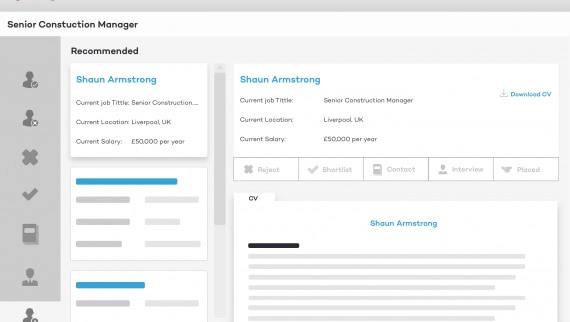
To help speed up your hiring process, we have built one of the most intuitive candidate management systems in the market.
Use this guide to get the most from the Milkround Candidate Management System.

Universum studied 39,500 students from 97 British Universities to understand the career aspirations, goals and workplace requirements for graduates.

Our most recent research* looks at generational changes, how attitudes to work have changed over time, and how this can affect a company’s attraction strategy.
Here’s what we found out…

Milkround have been working with UpRising for a number of years, as part of their ‘Fastlaners‘ programme for 18-25-year-olds. Discover our involvement and how employers can get involved and support developing the employability skills of young talent.

Our Candidate Compass research for 2019 revealed that an increasing number of students and graduates are taking on a second earning project, alongside their studies or full-time jobs and we wanted to find out more about them.
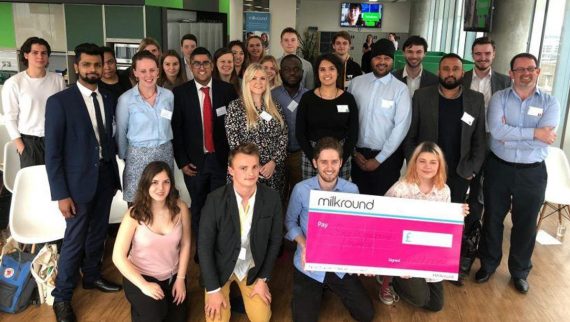
Want to network with a talented group of individuals and expose your brand to thousands of students?
Become a sponsor and judge of our annual Society Awards.
Discover:

With COVID-19 having impacted graduates’ career choices, we look at their current living situations and how the pandemic has affected where they are looking to live and work in the future. Learn more about how our findings present opportunities for businesses to showcase their closest cities to students and graduates.

Our latest research explores the experiences of graduates who have entered the workforce over the past year and how they have coped with a new remote way of working. The webinar also covers the thoughts of 500 HR decision makers who have hired graduates during national UK lockdowns and their thoughts for the future of work.

We share out latest research into how much it costs for graduates to relocate when stepping into the world of work. We also offer tips on how employers can better support graduates financially.

On Tuesday 22nd October, we hosted the Institute of Student Employers Attraction and Marketing Forum. Check out our key highlights from the afternoon.

A job description aimed at graduates needs to make a good first impression and is your chance to showcase your employer brand. Learn how to make your descriptions as engaging as possible with our expert advice.

Our research shows that 62% of Gen Z have taken a mental health sick day, but only 24% were honest with their employer.
In this guide, we cover our findings on mental health, a report by Student Minds and insight from the Institute of Student Employers.
We also share a number of actionable tips for addressing mental health and supporting young workers, as they transition from university to the workplace.

Here we share the key findings from our Candidate Compass report, where we surveyed over 7,000 students and graduates. We also share tips from global branding expert, Universum, on how you to harness your employer brand. Finally, we have some advice from Student Minds on how to support student and graduate well-being.

The transition moving from university into the workplace can be a significant challenge for a young person’s mental health and wellbeing, both employers and universities have an important role to play in supporting young people. We surveyed nearly 3,000 students and graduates to better understand student and graduate career perceptions and concerns with our research finding that only 29% of students and graduates feel that they could be open with their employer about mental health.
Download our one-pager below for more information on the support that students and graduates are looking for as well as some advice on how you...
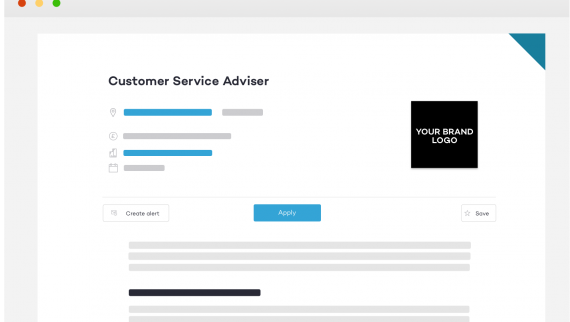
Below is your step-by-step guide to advertising a job on Totaljobs.
Before you get started, be sure that you have:

Our guide for interviewing and onboarding new graduates, including some of the best platforms to use whilst recruiting from home, our insight into graduates and the use of technology and our top tips for implementing this advice into your organisation.

We share out latest research into how much it costs for graduates to relocate when stepping into the world of work. We also offer tips on how employers can better support graduates financially.

Our research, where we surveyed 2,000 graduates, found that 71% of people can be discouraged from applying for jobs because of jargon. We encourage employers to use our ‘Jargon Decoder’ to help create your job descriptions.

Universum studied 39,500 students from 97 British Universities to understand the career aspirations, goals and workplace requirements for graduates.

To help speed up your hiring process, we have built one of the most intuitive candidate management systems in the market.
Use this guide to get the most from the Milkround Candidate Management System.

On Tuesday 22nd October, we hosted the Institute of Student Employers Attraction and Marketing Forum. Check out our key highlights from the afternoon.

On the 21st November, we were joined by 25 employers for an afternoon of roundtable discussions. We spoke about their biggest graduate recruitment challenges in 2019, as well as how they can better shape attraction and retention activity in 2020.

5 ways to attract graduate talent in the competitive market










Edit
Done
Sorry, something has gone wrong